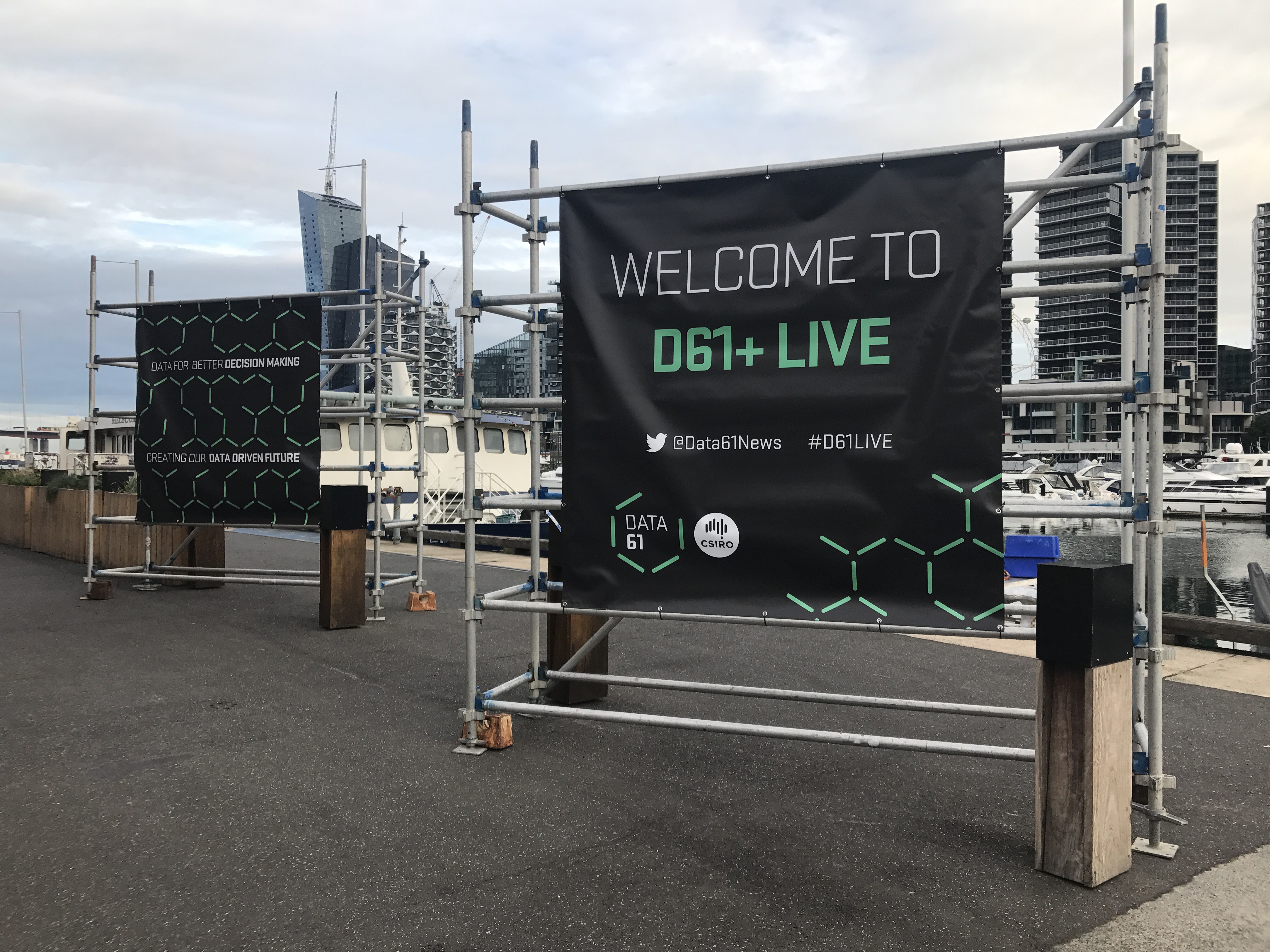Data61: A year into the digital transformation of an entire economy

In order for Australia to continue to grow, the country needs to create new industries and help accelerate the growth of existing industries, and this can only happen by embracing technology, according to Data61 CEO Adrian Turner.
However, just like any successful digital transformation, Turner told ZDNet the transformation of Australia's economy also requires a cultural adjustment.
"We've got all the ingredients and I think the biggest handbrake on the country is cultural," Turner said.
"If we can shift that mindset, because we've got everything else -- we really do have everything else -- there's nothing that will hold us back. And I think we will, it's only going to take a handful of successes and more people in the country thinking and talking differently and it will happen very quickly."
A year ago almost to the day, Turner began his role of CEO at the digital research and innovation organisation that is charged with ensuring Australia does not fall behind.
Comparing Australia to the United States, Turner believes that it is the country's mindset that has previously stifled innovation.
"In the world we're moving to, it's not first to market, it's first to scale matters," he told ZDNet at the D61+ Live conference in Melbourne last week.
"Frustration for me at times is there's still this internal domestic competition between participants, state vs state, uni vs uni, and what that means is there's a lot of fragmentation and some of the projects and some of the work are not scaled, they're sub-scaled."
He said the mindset of thinking one person's success is at the cost of the success of another is what is holding collaboration and partnerships back from their full potential.
Turner believes it's a mindset change, and the realisation that Australia must shift the focus from creating startups to seeding, growing, and creating new industries.
Although the United States has a long list of organisations that shot to billion-dollar tech giants as a result of the last computing cycle, Turner is optimistic that Australia is not too late to the party.
"I think we missed the last cycle, but if you look at the last cycle, it was about organising information, which was really Google; about communications, so Facebook and other [social media platforms]; and it's been about commerce, consumer-facing, like with Amazon," he explained.
"Where we're going next, the next 15-20 year computing cycle is about cyber physical systems and it's about core networked systems that enable commerce and information exchange communications, but it's about bridging the network and the physical world, and it's also about the intersection of digital and data and domains, like healthcare, agriculture, energy, minerals -- they're all domains that Australia has strength in.
"I think that's where Australia can really jump on this next wave -- I think we should be smart about competing where we have advantage to compete."
Turner returned back to Australia from Silicon Valley after spending 18 years working for a handful of tech giants and building startups of his own. Communications Minister cum Prime Minister Malcolm Turnbull immediately tasked him with leading what would be known as Data61.
Data61 was announced in mid-2015, and was the result of the merger of the digital productivity arm of the Commonwealth Scientific and Industrial Research Organisation (CSIRO) with National ICT Australia (NICTA). It was touted at the time as a "supercharge" to Australia's technological advancements.
AU$75 million in funding for the innovation body commenced on July 1, 2017, which was made available under Australia's AU$1.1 billion National Innovation and Science Agenda.
Celebrating the organisation's one year anniversary, Turner said Data61 is ahead of where he thought it would be and said he feels really good about the organisation's position.
"This year has been about stabilising the organisation, and defining strategy and organisational structure; it's making sure that we deliver on all of our obligations and also rebuild stakeholder confidence -- both state and federal governments," he said.
"We've got all of the ingredients now where we can push forward this coming year."
The CEO said he has no plans of going anywhere, commenting: "This is a job that's not done".
"If you think about merging the two organisations, and at the same time we've delivered all of our third-party obligations that we've said we would and we've delivered on all of our operating objectives -- all of the financial objectives we set out to achieve, we have," Turner explained. "The people part of this has been the most satisfying. I'm proud of that and it's the team stepping up."
Turner has high expectations of Data61's ability to carry innovation and research forward in Australia, and said the organisation will be shifting its focus, with its next priority to find partners to commercialise its intellectual property with.
"Where we can't find a partner, then we'll create a company," he said, pointing to Audinate, which closed its AU$21 million initial public offering on the Australian Securities Exchange last week, and Saluda Medical, which created an entirely new category around electroceuticals, building an implantable device that acts like noise cancelling headphones in that it flat-lines pain.
"Data61 is really a platform for the best and brightest in Australia and the world -- it's a big platform to accelerate careers," he added. "I actually think it would be a great outcome for the country if there was no need for Data61 10 years from now. We're trying to enable and lift other people -- the whole country lifts."
Disclosure: Asha Barbaschow travelled to D61+ Live as a guest of Data61.
